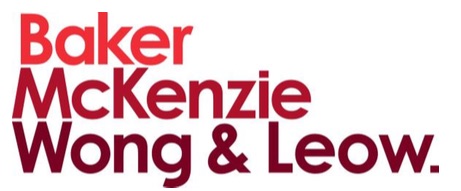1 June, 2019
Following instructions from the Ministry of Health ("MOH") to public hospitals to end the practice of paying referral fees to foreign agents, it appears these agents are now targeting private medical practitioners.
In September 2018, the MOH told public hospitals to terminate all contracts which entailed the hospitals paying referral fees to third-party agents who refer patients from overseas. Under these arrangements, the agent is typically paid a percentage of the patient's hospital bill, with bonuses if the bill exceeded certain amounts.
In response, some agents have now shifted their attention to private doctors and private hospitals, disguising kickbacks that they receive as marketing charges. These agents operate both overseas and locally – with some possibly working in local hospitals. They represent patients from countries such as China, Indonesia, Russia and Vietnam, and may earn commissions as high as 30% of a patient's medical charges in addition to a fixed retainer fee.
Beyond legitimate medical services, some rogue medical agents may also promote access to illegal organ transplant services. According to journalist investigations, agents prefer to refer clients to Singapore as they receive more kickbacks than in other countries in the region. These agents aggressively market their services to doctors and choose those who provide the highest profit margins.
One doctor revealed that some rogue agents ask for an upfront payment of $10,000, to be used for "sourcing patients, making recommendations and advertising". In reality, these are kickbacks disguised as marketing fees.
Singaporean patients may be negatively affected by these kickback schemes through rising health insurance premiums. The addition of referral fees to clinical bills may inflate medical costs, which are passed on to insurers through claims. This ultimately increases insurance premiums.
Such practices may also fall foul of the Singapore Medical Council ("SMC") Ethical Code and Ethical Guidelines ("Guidelines").
The 2016 edition of the Guidelines permit doctors to pay third-party administrators or patient referral services fees that reflect their actual work in handling and processing patients. However, these fees cannot be based primarily on the services the doctor provides or the fees that the doctor collects. Neither can they be so high as to constitute "fee splitting" or "fee sharing", or render the doctor unable to provide the required standard of care.
Additionally, patients must be informed if doctors pass on these agent fees to them.
Referring to such activities, an MOH spokesman said that the MOH and SMC take a serious view of conduct that are not in line with the intent of the Guidelines, and of doctors who engage in activities that contravene the Guidelines.
Comment
Before entering into any agreement that requires a payment of fees to third parties, healthcare providers and institutions should ensure that the fees payable reflect the work done by the third parties, and are not based primarily on the services the doctors provide or fees collected. They should refrain from entering into an arrangement to pay such fees if they are unsure whether the fee payable is in compliance with the Guidelines.
At the same time, healthcare service providers which provide referral services should also be cautious not to propose any fee arrangements that may contravene the Guidelines.
Breaches of the Guidelines may lead to doctors being asked to defend their actions, and expose them to disciplinary proceedings for professional misconduct. If the SMC receives any complaint or information that a doctor is involved in the payment of fees that contravene the Guidelines, the SMC may refer the matter to the chairman of the Complaint Panel, and a Complaints Committee will make further inquiries.
Additionally, such practices may run the risk of contravening the Prevention of Corruption Act. This is because offering payments in exchange for patient referrals may create financial incentives for healthcare professionals to prioritise their personal interests over the best interests of their patients, and may constitute a corrupt gratification.
The 2016 edition of the Guidelines can be found here.
For further information, please contact:
Andy Leck, Principal, Baker & McKenzie.Wong & Leow
andy.leck@bakermckenzie.com





